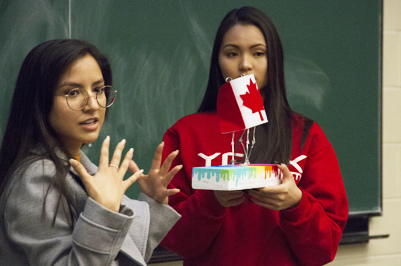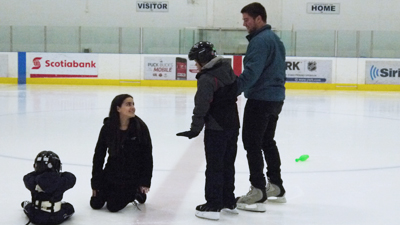Experiential education (EE) is an approach to learning that bridges theory and practice. You participate in applied practical experiences and then reflect on the experiences using the knowledge you have learned in your program.
Whether it is within or outside the classroom, EE will help you to develop important skills like communication, teamwork, and problem solving. Visit the Experiential Education Guide, a resource developed specifically for students, to learn more about experiential education, and find tools to help you succeed in EE.
Quick Links
What does experiential education look like?
EE can take many forms, and chances are that you have already participated in at least one type of EE in your program. Visit our gallery to see examples of EE in the Faculty of Health.

Classroom-Focused
You apply course theories and concepts during concrete learning activities (e.g. labs, field trips, talks by guest speakers), within or outside the classroom. Then you reflect on your experience in light of the course content and your own ideas.

Community-Focused
You have the opportunity to interact with community partners and support projects that benefit the community, and allow you to apply the course content. Then you reflect on the experience by linking it to your understanding of theory.

Work-Focused
You get hands-on work experience within authentic work environments. This allows you to get hands-on work experience within authentic work environments and allows you to develop competencies and skills by applying the theories and concepts learned in your program, and reflecting on your actions.
